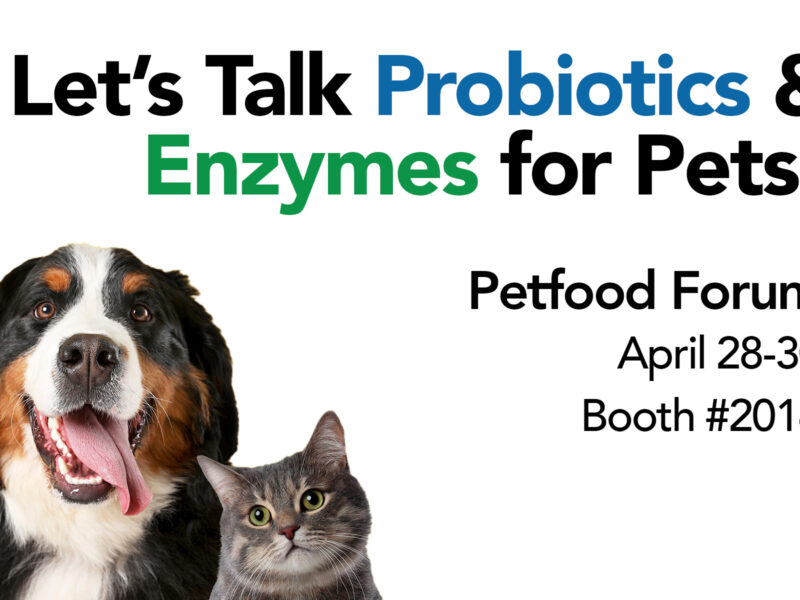
Pet Nutrition: Digestive Enzymes Offer Health Boost to Dogs & Cats
Enzymes are protein molecules which perform specific functions. They are not “alive”, like probiotics, but they are only active under certain conditions. This is because proteins- which are made of chains of amino acids- can easily be denatured. Excessive heat or extremes in pH can disrupt the bonds that hold proteins together, rendering enzymes ineffective. This is why enzymes are best stored under refrigeration, or at least in a cool, dry place to maintain maximum activity. Enzymes can come from different sources- animal, plant, or microbial. Animal-sourced enzymes tend to have less stability over different pH ranges. Enzymes from plant sources (such as Papain from papaya and Bromelain from pineapple) and microbial (fungal and bacterial) sources are generally tolerant of wider pH and temperature ranges.
So- what do these proteins do? Enzymes have specific substrates that they act upon. For example, Amylases act on Starch, Cellulases act on Cellulose, and Proteases act on Proteins. In the case of these digestive enzymes, the enzymes work to break these substrate molecules into smaller constituents. Amylase enzymes take the more complex molecule starch and break it down into simple sugars. This is useful in pets such as dogs because sugars are more easily absorbed in the digestive tract. Undigested starch can cause problems (such as bloating) in several animals. However, since each enzyme only acts on a specific substrate, a digestive blend of enzymes should include a range of enzymes which will act upon all components of the food. Dogs cannot digest certain plant components such as cellulose, so supplemental cellulase can help them gain additional nutrients from a source that is otherwise not utilized.
More complete digestion of food provides a great benefit to both pets and owners. Pets tend to experience less digestive disturbances that may be associated with poorly digested food, and they may also gain a healthier looking coat due to the increase in available nutrients. In addition to this, many owners notice smaller, more consistent stools from their dogs due to the fact that less food is getting passed out undigested.
Many of the digestive problems that dogs and cats experience today are the result of a diet consisting only of processed foods lacking enzymes. Whether you feed cooked kibble or a raw diet, all pets can benefit from the addition of enzymes to improve digestion and overall health.
Please feel free to send us an e-mail with any questions about enzymes! animal@specialtyenzymes.com




